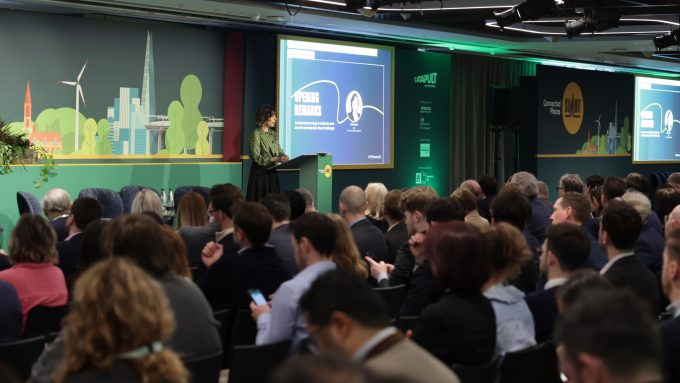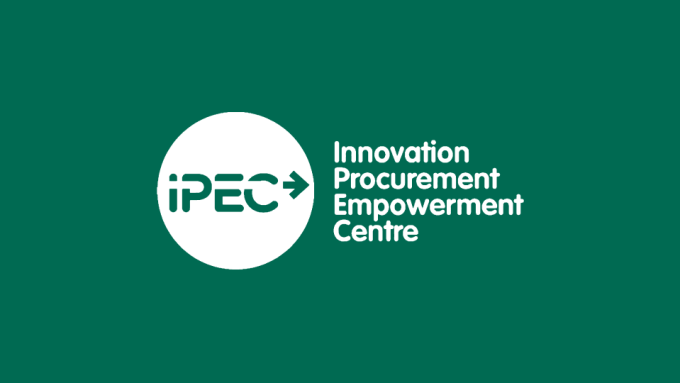
Smart procurement is key to support Government growth plans

Britain is set to enter an exciting period for public services. Not only did last week’s King’s Speech set out 39 new Bills – several of which will have profound implications for investment in our towns, cities and for transport – but the new Procurement Act, which comes into effect this autumn, equips public sector managers to turn their everyday spending into fuel for innovation.
The UK public sector already spends more than £380bn with the private sector annually. The way that these public contracts are brought to market has the power to generate new ideas and ways of working which improve operational productivity, service outcomes and other policy priorities like the net zero transition.
Far from being a barrier to innovation, procurement is a lever to boost the delivery of the Government’s ambitious programme for growth and transformation.
Opportunities to inspire and integrate new solutions through smarter spending abound across the Government’s programme. New public agencies like Great British Railways, Great British Energy and the National Infrastructure and Service Transformation Authority will be huge customers of goods and services, with power to shape markets.
They should each be ambitious in using their significant purchasing powers to inspire and integrate innovative products or solutions into the delivery and operations of infrastructure. Firms which engage these public bodies in solving the challenges of UK infrastructure by trialling and solving will be well placed to export their services overseas, generating wealth for UK Plc.
Not all the opportunities are in central Government and its agencies, however. Local authorities are also already major buyers of goods and services and have a strong track record in harnessing procurement to stimulate innovation in local services. Here are some examples:
- Transport for London rapidly tested nine potential suppliers using a flexible process to identify suppliers with credible solutions to reducing adverse economic impact of roadworks. Two companies emerged from the process with commercial contracts.
- Liverpool City Council used procurement to identify and introduce a new household waste collection service which saw recycling rise by 270%, reduced the cost of collection by 57% and reduced the service’s carbon footprint by 60%.
- Belfast City Council (with help from Connected Places Catapult) identified and validated a new supplier to maximise the collection of business rates, resulting in more than £1 million in annual revenues for the city.
- We are seeing many regions from Sunderland, Dorset to Glasgow using procurement as a strategic lever to bring in innovative solutions
With further devolution of powers and resources promised, all local and combined authorities should be integrating innovation-focused early market engagement mechanisms into their delivery plans which mobilise suppliers to come up with solutions to priority challenges.
Tackling the cultural barrier which limits the potential benefits of public procurement should be a priority for the new Government. A recent survey showed that only 43% of public sector workers were somewhat aware of procurement practices designed to foster innovation, while a similar number only (46%) believed that procurement can be an enabler of innovation. 10% firmly hold the opposite opinion.
Connected Places Catapult, through its initiative the Innovation Procurement Empowerment Centre (IPEC), stands ready to support the new Government’s ambitions, and to help public authorities make the most of their purchasing power.
Since 2019, we have been working with councils and research teams across the UK to raise awareness of the art of the possible in public procurement, challenge risk averse organisational culture, and empower more public authorities to be confident, articulate customers of innovation and realise the benefits.
With public sector funding under pressure, how we spend public money is more important than ever. Embracing procurement as a tool for generating new solutions can transform existing funds into fuel for innovation; to drive better, cheaper and quicker outcomes, operational productivity and policy goals such as net zero.
Putting the right procurement practices in place means bringing more innovation forward from the market, co-developing creative solutions, and using data to make intelligent decisions.
More flexible and open procedures challenge monopolies and create opportunities for new entrants to deliver disruptive solutions. Of 235 large contracts recorded on Find a Tender between January 2021 and January 2023, 20% of contracts using open competition received only one bid. Through IPEC we are determined to equip the public sector to be a more intelligent client, with more inclusive and intentional procurement practices which provide better access for providers with creative solutions, delivering in turn better outcomes for service users and better value for money for taxpayers.
Driving the agenda forwards
The availability and quality of data available to suppliers about the performance and cost of existing services is also a barrier to innovation, as is the general lack of information about pipelines of future opportunities which help suppliers to plan. Good quality information about future commercial opportunities helps suppliers to invest with confidence in developing novel solutions, while data on the performance of existing delivery helps prospective suppliers to benchmark their offerings and identify opportunities to compete.
Improvements to data transparency are included in the Procurement Act. We strongly encourage the new Government to explore ways to accelerate and extend data transparency across the public sector, thus equipping suppliers with the information they require to compete for contracts of today and to invest in solving the challenges of tomorrow.
The new administration has already made strides towards this transparency with its clear commitment to be a mission-led Government. This approach aligns well with Connected Places Catapult’s own championing of outcome, or challenge-based procurement. When engaging the market, the public sector has a tendency to prescribe how they want a contract delivered, rather than what outcome the contract is designed to achieve.
Being more outcome focused creates space for a wider range of suppliers to engage in the opportunity – including those who may never have responded to a public tender before. A flexible process then allows for validation and sifting of solutions before the final contract is awarded. Mission-led Government must be accompanied by an equal commitment to outcomes in procurement practices.
Connected Places Catapult is ready and eager to work with more senior leaders from the public sector and industry to accelerate the development and adoption of innovation in the delivery of the Government’s ambitious programme. We have the capability and experience needed to drive change, and a fast-growing community of allies.
We are keen to connect with public sector professionals who are having difficulties with navigating procurement to introduce new solutions, so we can help to unblock the problem.
Equally we want to hear about successes too, so we can amplify them to a wider audience and inspire others. Please do get in touch at contact@ipec.org.uk.
Sam Markey is Director of Place Leadership at Connected Places Catapult, and Rikesh Shah is Head of the Innovation Procurement Empowerment Centre.
Join the IPEC network.
Read: Sparking Innovation Through the Market: A Review of Pioneering Practice
Listen to Rikesh Shah discuss the future of innovation procurement on the most recent Connected Places podcast.





